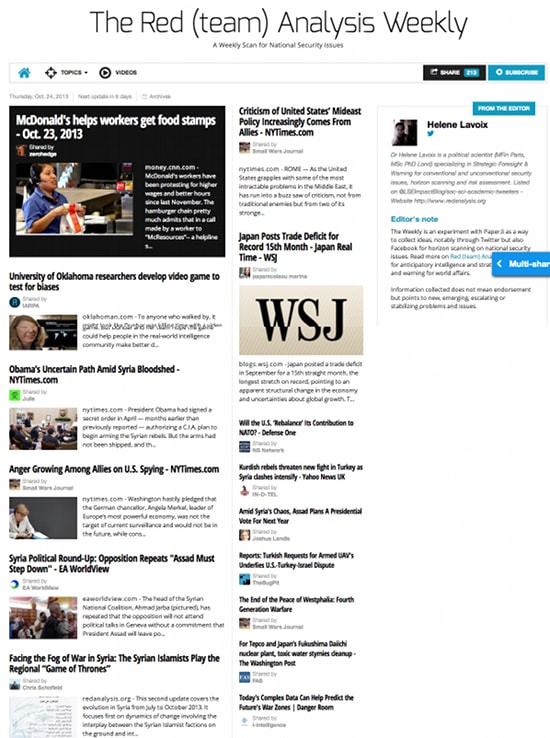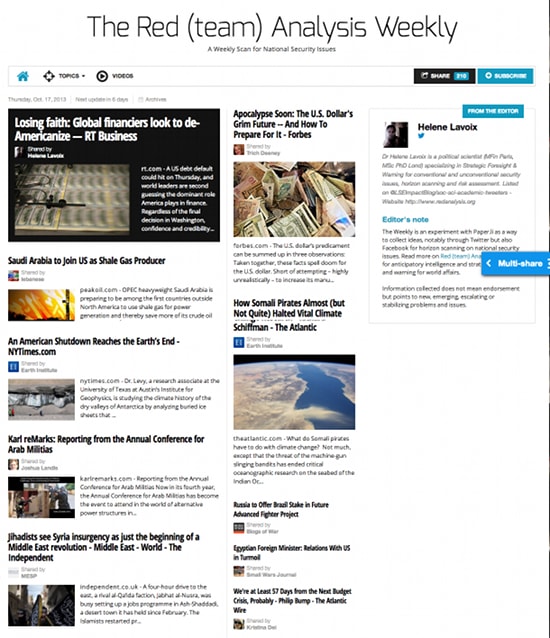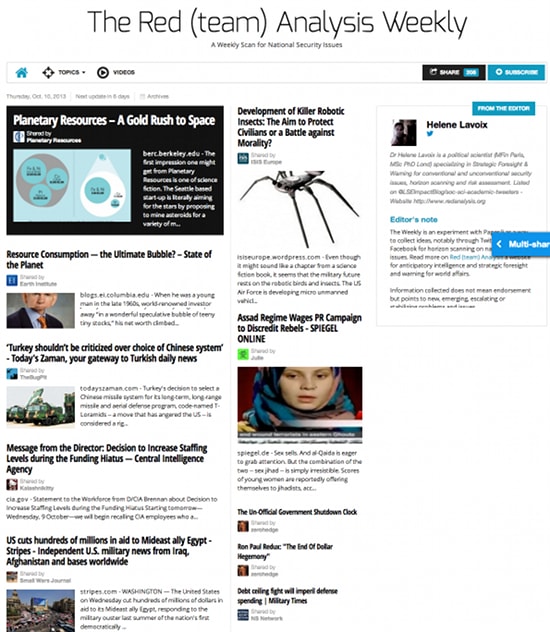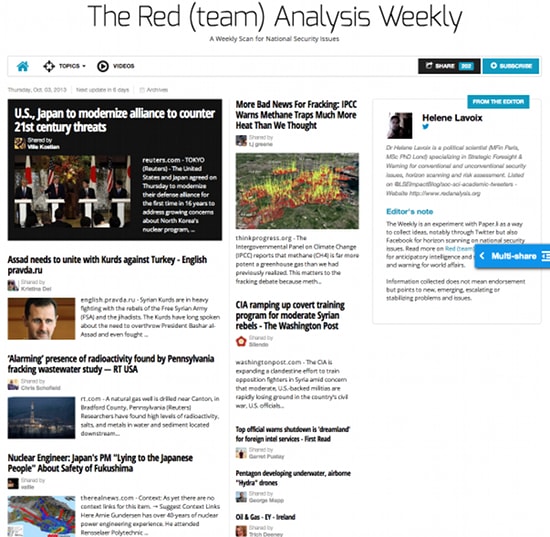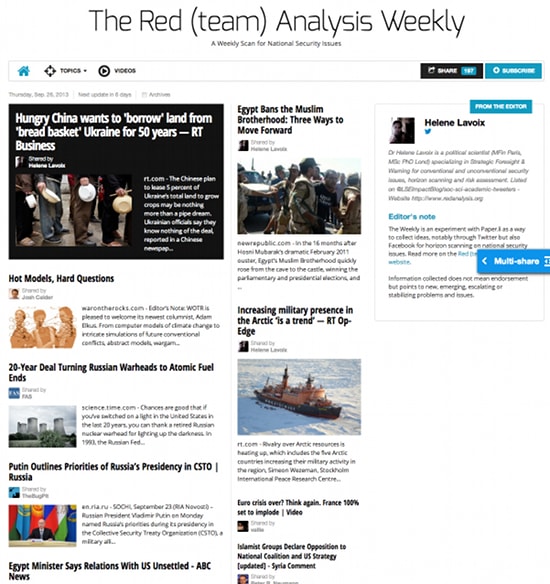 “Businesses run the world, they are better managed, more efficient at all levels, promote innovation and discoveries, and deliver better services and products than any other organization, notably governments and states’ administrations.” This is a hardly caricatured representation of the worldview we have increasingly known since at least the middle of the 1980s, that bloomed and became entrenched in the 1990s and in the first decade of the 21st century. Yet, what if it were now showing signs of being questioned, besides protests movements? And which signals can we find that could indicate the possibility of cracks in the hegemony of this idea?
“Businesses run the world, they are better managed, more efficient at all levels, promote innovation and discoveries, and deliver better services and products than any other organization, notably governments and states’ administrations.” This is a hardly caricatured representation of the worldview we have increasingly known since at least the middle of the 1980s, that bloomed and became entrenched in the 1990s and in the first decade of the 21st century. Yet, what if it were now showing signs of being questioned, besides protests movements? And which signals can we find that could indicate the possibility of cracks in the hegemony of this idea?
A first signal comes from what we could call an elite group, itself benefiting from the hegemony. The Henry Jackson Initiative For Inclusive Capitalism (HJI), launched on 14 May 2012, although focusing on capitalism as a system and aimed at the private sector, seeks to promote a better capitalism, because:
“we believe that a broad-based acceptance of basic ethical norms is necessary if any form of capitalism is to be widely accepted. Otherwise, the system itself will be discredited and ultimately destroyed, whether by internal failures, external pressures or both—or by some other unforeseen and undesirable force.” (HJI Task Force’s report, p.6)
It promotes the vision held by neoliberalism, according to which “capitalism has made the world healthier, richer and freer than previous generations could have imagined. People in capitalist societies live longer than their forebears, earn more and are better educated,” (report, p.4), but also take stocks of many of its shortcomings and adverse impacts. By doing so, it seeks to only bring “modifications” (p.6) to the current system, not to completely change it. Yet, its very efforts will contribute to achieve something different from what we knew. Furthermore, the HJI shows that it is now possible to question the dominant ideology without being marginalized. This signal, as the next one, would most probably not have emerged if the various protests movements that took place worldwide, from the “Arab Awakening” to Occupy, had not occurred, as indeed underlined p.26 of the report. Interestingly, the HJI also specifies that its focus is the private sector, thus acknowledging a difference between the mission of governments and states’ administrations on the one hand, and the role of businesses on the other, setting a clear line between both, in contradiction with the previous worldview:
We decidedly take no position as to exactly what level of taxation and regulation best balances the ability of government to do what it must without harming the desire of entrepreneurs and businesses to do what they can.” (my emphasis – report p.6)
The signal is all the more important that the HJI it is a child of the British and transatlantic think tank the Henry Jackson Society (see notably its history and its advisory council), and relayed by famous and recognized media, such as The Economist, as shows the interview of Lady Lynn Forrester de Rothschild, a crucial member of the HJI task force, and among others, Chief Executive of E.L. Rothschild LLC as well as a Director at The Economist, on “Capitalism and society in 2013” (video, The Economist’s World in 2013, Gala dinner on December 6th 2012).
A second signal comes from the website OnlineMBA.com, which has as “larger mission to educate prospective MBA students, not only about their options for online programs, but also about current trends in business”.* As part of its education purpose, this website produces videos (Minute MBA), and one of its latest production is titled “3 reasons why government shouldn’t be run like a business” (see here for a transcript):
In the words of one member of the video production team:
“This is an independent research project. We are not connected and affiliated by any school, organization or government. Moreover, we are privately funded by contributors and researchers who have volunteered their time to create this resource and other resources within our site.”*
Besides being interesting and very well done, this video – and it can also be taken as a perfect example of the diversity of ways we can use to deliver products – is a direct signal that cracks in the neoliberal ideology exist and seem to spread. Interestingly, once more, it comes from one of those very groups – the private sector – that were meant to benefit most from the paradigm. Furthermore, it is promoted by the young generation and within the field of education, which is one of the institutions in society where norms are inculcated.
The existence of those signals does not mean that everything will change overnight, nor even that the still current worldview is meant to disappear. We could witness a possible polarization taking place in the Western World and elsewhere, as suggested previously, but with changes compared with what was noted in November 2012. Either the polarization will be kept in check and a more peaceful evolution will take place, as the signals here suggests, or the polarization will happen, but with a positioning of actors that could be seen as surprising from the point of view of the worldview questioned. The indications reported here could also disappear, not be followed by others, leaving the ideology more entrenched… for a while, as it is the historical destiny of worldviews to be born, bloom and then disappear. In any case, this issue must continue to be monitored.
* Red (team) Analysis was contacted by the video production team of onlineMBA, who suggested, rightly, that I could be interested in this video. Quotes are taken from the email exchanges with them.

